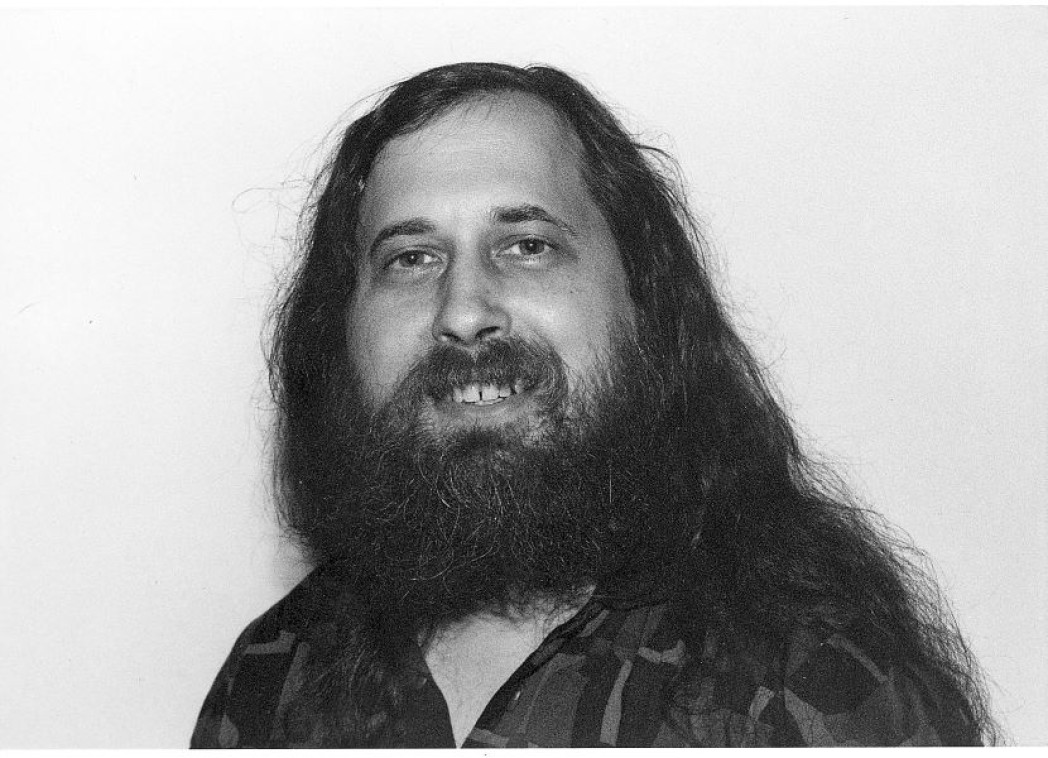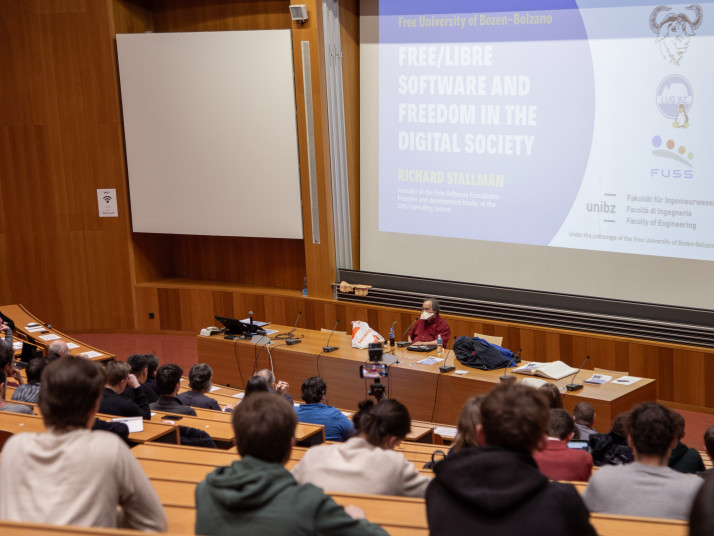Fighting for (software) freedom: interview with Richard Stallman
By Giulia Maria Marchetti

Few figures in the tech world have been as influential, and as uncompromising, as Richard Stallman. As the founder of the Free Software Foundation and the creator of the GNU Project, Stallman has spent decades advocating for software freedom, challenging corporate control, and warning against the dangers of proprietary software. In his seminar at our university, he shared his views on the current threats to digital freedom and the role of free software in today’s society.
What is free software and why is it important?
Free software is software that the users control. The other type of software is non-free software, which is controlled by someone else, usually a company, rather than the users themselves. In non-free software, the program controls the user and serves as an instrument to impose the owner's power over the user for purposes that are often not positive for the user. Most people who use computers are using non-free software and they take for granted that this harmful behaviour is normal, they feel like they are not allowed to complain about it. It shouldn't be this way: users should always have the freedom to use and modify software but, at the same time, should not control how others use it. Non-free software is unjust because it restricts users from accessing source code, modifying it, or sharing copies. These restrictions prevent people from exercising control over their own lives and from helping others: I refuse to accept such limitations.
Can you tell us about the Free Software Movement and the GNU operating system?
In 1983, I started the Free Software Movement to ensure that people could use modern computers without having to rely on non-free software, which was then unavoidable. To achieve this, I proposed the creation of a free operating system that would give users freedom and control over their computing. I made it compatible with Unix, which was an important operating system at the time. We had a tradition of naming new programs with recursive acronyms that said "this thing is not the other thing". So I coined the name "GNU" (pronounced with a hard G) as a playful way of saying "GNU Not Unix". Once Linux was developed, it was combined with GNU, creating the GNU operating system with Linux as its kernel.
What are the differences between the Free Software Movement and the Open Source Movement?
“Open source” was a term coined in 1998 by those who supported the concept of free software but rejected the moral philosophy of the Free Software Movement, which was too radical for them. They avoided framing non-free software as a social injustice and instead focused on practical aspects, like access to source code and the ability to modify and share it. While open source and free software mostly overlap, they differ in ideology, which is why I never promote the term "open source”.
How can we promote ethical awareness in software development and the use of free software?
First of all, universities should educate software engineers who are aware of the ethics behind their work. Teaching of ethics in this field may help some programmers to realise that they don’t want to develop shackles for a company to put on people. Still, there are many engineers who choose to work for these companies, if only for the money. So we have to go beyond that. What we are trying to do is to also educate the population to see that there is an alternative to non-free software. People are becoming more aware, but there is still a lot of work to be done. We are not close to putting an end to non-free software, but I have to keep on trying.
How can you ensure that a program, along with any modifications made to it, remains free?
To ensure that a program and its modifications remain free, a license is applied that grants users the four essential freedoms: to run, study, modify, and distribute the software. There are two main types of free software licenses: copyleft, which requires any modified version to be redistributed under the same license, ensuring it remains free, and non-copyleft, which allows modifications to become non-free. I developed the concept of copyleft, and, since then, the Free Software Foundation has applied and enforced it to protect the freedom of all versions of our code.
Given the benefits of free software, why do many people still use non-free software?
Businesses have created a network effect, meaning that if a lot of people use a particular communication system, there is social pressure to use it. This is particularly true when it comes to computers, because it is more practical to use the same system to exchange information and files, and so there is a lot of pressure on people to use Windows or Android these days. People would have to make an effort to reject them, which many people just don't do. Apple, for example, controls what programs can run on your devices: this is unfair, but many people still use their products.
Regarding freedom: it is a concept that is in danger nowadays. Any thoughts on the matter?
I have a partial solution to the danger of far-right extremist movements, which seek to subjugate everyone and put an end to the freedoms that make up liberal government. A major factor in their rise to power has been the influence of social media platforms, which use recommendation engines to shape what users see. Facebook, for examples, runs its own recommendation engine, affecting what users see in their profiles. My idea is that a user posting platform should not be allowed to have its own recommendation engine, but it should rather let other businesses developing recommendation engines compete freely, allowing users to choose the recommendation they want to be shown. And there would need to be filters to block disinformation: it’s these platforms that make disinformation so powerful, and the right wing parties live by disinformation.
